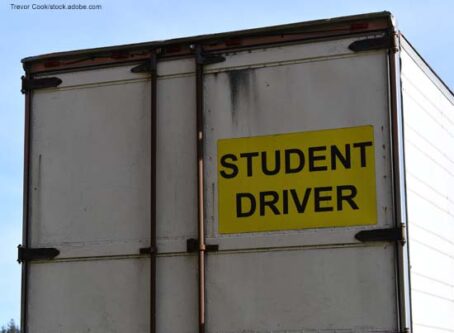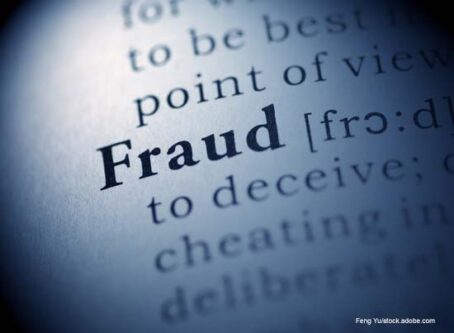State officials set stage for transportation funding discussions
Officials around the country are preparing for discussion in the months ahead about funding transportation needs. Below is a sampling of discussions at statehouses that are expected to take place.
Alabama
Transportation funding is expected to receive much consideration after the first of the year. State legislators are pressing forward for a plan to fund infrastructure projects.
State and local officials around Alabama advocate for increasing the fuel tax rates. Republican Gov. Kay Ivey and GOP leaders at the statehouse must decide whether additional taxes is among the solution’s to the state’s funding needs.
The state now collects 18 cents per gallon on gas and 19 cents on diesel. The fuel rates have remained unchanged since 1992.
About 45 percent of the tax revenue is routed to the state Department of Transportation. The other 55 percent goes for local projects. Of the local allocation, 45 percent is routed to counties with equal allotment. The remainder is distributed by population, with 10 percent used for work by municipalities.
In addition, local governments can choose to collect their own fuel tax.
Discussion leading up to the convening of the 2019 regular session is focused on possibly indexing the state’s excise tax rate. The change to indexing would allow for the fuel tax to rise automatically with the rate of inflation.
Local leaders also want a bigger share of any fuel tax increase.
Illinois
A group of mayors from the Chicago area are calling for legislators to get a deal done to raise the Illinois fuel tax rate.
Officials say the 19-cent gas tax and 21.5-cent diesel tax have remained unchanged for far too long.
Outgoing Chicago Mayor Rahm Emanuel is among the mayors in support of a 20- to 30-cent increase to pay for needed transit and road work.
The group also wants the excise rates tied to inflation, which would allow for regular increases.
Emanuel’s office says every 5-cent-per-gallon increase in the fuel tax raises about $20 million more in city revenue and more than $250 million statewide.
J.B. Pritzker, Illinois’ Democratic governor-elect, says many options are on the table to fund transportation work. Earlier this year Pritzker indicated he would consider a vehicle-miles-traveled tax. He has since attempted to distance himself from his comments and instead said VMT is something that the state should look into to address decreasing fuel tax revenues.
Kansas
Some discussion in the lead-up up to next year’s regular session covers a possible increase in the state’s 24-cent excise rate.
A state task force has recommended that state lawmakers pursue more money via sales taxes, the fuel tax, and a fee on electric vehicles. Amounts for possible increases have not been determined.
The panel has recommended that any additional revenue raised for transportation be protected from being spent on other priorities. They note that more than $2 billion in transportation revenue has been rerouted to other budgets in recent years.
Kentucky
The pursuit of a fuel tax increase is expected at the state capitol to help address a $1 billion backlog in road paving projects.
The existing gas and diesel rates are tied to the price at the pump. Price dips result in fewer tax dollars charged.
One possibility to help address the issue is the implementation of a flat tax rate.
A failed bipartisan attempt during the 2018 regular session sought to raise the state’s fuel tax rate by a dime to raise $390 million annually. Annual fees would also have been permitted on hybrid and electric vehicles.
Leaders in the GOP-led statehouse say that fuel tax is not the lone solution to address long-term funding needs. Gov. Matt Bevin said that he wants to see lawmakers provide creative ideas.
“Where’s the money going to come from? It’s going to come from the people who use this infrastructure,” Bevin told the Kentucky Chamber of Commerce. “It’s not pleasant, it’s not fun. … but people understand you need to pay for the things you use.”
The Republican governor added it will take some “intestinal fortitude” among legislators to get a deal done.
Minnesota
Gov.-elect Tim Walz is touting the need for a fuel tax increase to pay for transportation improvements.
The state now charges a 28.5-cent tax rate on gas and diesel. The tax raised about $910 million one year ago.
The Democrat says transportation will be a top priority of his administration. To date, he has declined to offer specifics on how much the tax should be increased.
Whether the idea can gain traction at the statehouse is unknown. Democrats control the House chamber but Republicans hold a one-seat majority in the Senate.
GOP lawmakers say there is plenty of money already available for transportation funding. They cite a budget surplus.
Other options mentioned for addressing transportation funding needs is using auto part sales and repair taxes solely for transportation purposes. The revenue now is earmarked for the state’s general fund.
A large transportation funding bill is expected to be considering during the 2019 regular session.
Missouri
Fresh off an Election Day defeat of a 10-cent increase to the state’s 17-cent fuel tax rate, transportation officials say a dire situation to fund road and bridge work will only worsen until legislators get a deal done.
The state’s Department of Transportation has said there is an $825 million gap in annual road and bridge funding.
MoDOT Director Patrick McKenna says a federal grant provided to the state will be used to study alternatives to the fuel tax. He adds that increasing the state’s vehicle registration fees has support of some state officials. In addition, a vehicle-miles-traveled fee is an option down the road.









